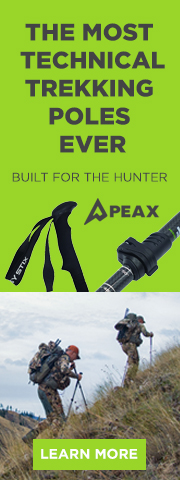JohnFitzgerald
New member
- Mar 31, 2014
- 1,108
I\'m not trying to be confrontational and I truly don\'t get why some call it that. I need help understanding.
Rarely, but I have heard what others call a Challenge Bugle. The growls were very distinct and on the \'nasty\' end of the bugle spectrum.
1) When a bull gives just a growl, it\'s a warning.
2) When a bull gives a bugle, he\'s announcing his position.
3) When he gives a growl followed by a bugle, it\'s a Challenge Bugle
Kinda makes more sense that it\'s a Warning Bugle? (ie I\'m warning you that I\'m right here).
Why would a herd bull ever invite a satellite to a challenge?
Is a warning the same as a challenge? Things just don\'t add up so please tell me what you think.
Rarely, but I have heard what others call a Challenge Bugle. The growls were very distinct and on the \'nasty\' end of the bugle spectrum.
1) When a bull gives just a growl, it\'s a warning.
2) When a bull gives a bugle, he\'s announcing his position.
3) When he gives a growl followed by a bugle, it\'s a Challenge Bugle
Kinda makes more sense that it\'s a Warning Bugle? (ie I\'m warning you that I\'m right here).
Why would a herd bull ever invite a satellite to a challenge?
Is a warning the same as a challenge? Things just don\'t add up so please tell me what you think.



